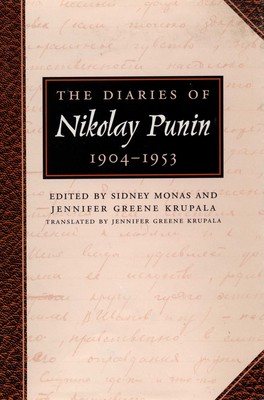
- We will send in 10–14 business days.
- Author: Nikolay Punin
- Publisher: University of Texas Press
- ISBN-10: 0292723776
- ISBN-13: 9780292723771
- Format: 15.2 x 22.9 x 1.9 cm, softcover
- Language: English
- SAVE -10% with code: EXTRA
Reviews
Description
Nikolay Punin (1888-1953) was the most articulate Russian/Soviet art critic of the 1920s. He strongly advocated Constructivism, an avant-garde impulse that favored mechanomorphic abstraction and proclaimed a movement to bring art into the center of popular life. In the United States, he is perhaps best remembered for his love affair with Anna Akhmatova, one of the great poets of the twentieth century.
This volume presents the first English translation of ten diary notebooks that Punin wrote between 1915 and 1936, as well as selections from his earlier (1904-1910) and later (1941-1946) diaries and some thirty notes and letters relating to his affair with Anna Akhmatova. These materials offer a rare glimpse into the life of art and artists in Russia. They also present vivid scenes from the 1905 Revolution, World War I, the 1917 Revolutions, World War II, and Stalinist oppression through the reflections of a talented man, who, unlike many of his generation, lived to tell the tale.
EXTRA 10 % discount with code: EXTRA
The promotion ends in 16d.17:45:59
The discount code is valid when purchasing from 10 €. Discounts do not stack.
- Author: Nikolay Punin
- Publisher: University of Texas Press
- ISBN-10: 0292723776
- ISBN-13: 9780292723771
- Format: 15.2 x 22.9 x 1.9 cm, softcover
- Language: English English
Nikolay Punin (1888-1953) was the most articulate Russian/Soviet art critic of the 1920s. He strongly advocated Constructivism, an avant-garde impulse that favored mechanomorphic abstraction and proclaimed a movement to bring art into the center of popular life. In the United States, he is perhaps best remembered for his love affair with Anna Akhmatova, one of the great poets of the twentieth century.
This volume presents the first English translation of ten diary notebooks that Punin wrote between 1915 and 1936, as well as selections from his earlier (1904-1910) and later (1941-1946) diaries and some thirty notes and letters relating to his affair with Anna Akhmatova. These materials offer a rare glimpse into the life of art and artists in Russia. They also present vivid scenes from the 1905 Revolution, World War I, the 1917 Revolutions, World War II, and Stalinist oppression through the reflections of a talented man, who, unlike many of his generation, lived to tell the tale.


Reviews